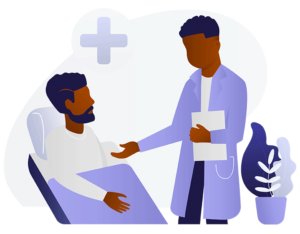Biomedical Sciences
The basic elements of the Biomedical Sciences Program are advanced concepts in biomedicine and molecular biology taught in an age-appropriate manner. The program is designed to bring college level material to secondary students and is a collaborative effort with Northern Virginia Community College. This program was recently awarded a grant from Illumina Foundation (https://www.luminafoundation.org) to do a university level COVID research project.
The program is led by Dr. Tshaka Cunningham of George Mason University and Dr. Vashti Bryant, the assistant dean of biology at Northern Virginia Community College, and includes exciting hands-on activities to more deeply involve students in the subject matter.
The program is led by Dr. Tshaka Cunningham of George Mason University and Dr. Vashti Bryant, the assistant dean of biology at Northern Virginia Community College, and includes exciting hands-on activities to more deeply involve students in the subject matter.
The Biomedical Science track is designed to help students acquire an understanding of life science concepts and develop skills in planning and executing scientific experiments. Emphasis is placed on basic lab skills, nucleic acid structure and manipulation, cell structure and function, protein structure and analysis, drug development, science communication, and entrepreneurship. Students participate in an active instructional process that includes hands-on laboratory work, presentations by inventive scientists, field trips, performance-based assessment, and internship opportunities. The instruction includes detailed guidance on applying the scientific method to approach various problems in the biomedical sciences. The instruction also includes insight into the potential commercialization opportunities in the field. Graduates of this program are able to successfully plan an experiment using proper controls, perform a scientific experiment to collect data, analyze data sets, draw sound conclusions, and communicate scientific information to a broader audience. In particular, students learn how to use basic laboratory equipment, perform basic laboratory calculations, analyze DNA and protein data, approach the drug development process, communicate science, and establish a start-up company in the field.
In addition, students will learn about “big data.” Big data is a term for data sets that are so large or complex that traditional data processing application software is inadequate to deal with them. Big data challenges include capturing data, data storage, data analysis, search, sharing, transfer, visualization, querying, updating, and information privacy.
Program Goals
- To motivate students toward careers as biomedicine/biotechnology professionals.
- To help students develop a pathway to employment in the biomedicine/biotechnology industry.
- To provide a competitive advantage for our students to enter college with the skills, experiences, and exposures that colleges find attractive.
- To offer students certifications in topics related to biomedicine and biotechnology

